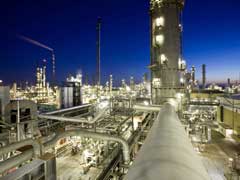BASF to reduce caprolactam capacity in Europe

In what it says is a “realignment”, German chemicals firm BASF will gradually reduce capacity of caprolactam by 100,000 to 400,000 tonnes over the next 18 months. In Ludwigshafen, parts of the caprolactam production as well as plants producing the precursors anolone and oleum will be closed.
The aim of this measure is to further strengthen its polyamide 6 value chain in what it says is a difficult market environment. “The realigned production structure will further enhance our competitiveness,” said Joachim Queisser, head of the European business unit Polyamides and Precursors at BASF. “At the same time, it gives us greater flexibility in managing our capacities. As a result, we can respond even better to changing market conditions.”
Caprolactam is the starting material for polyamide 6. BASF’s polyamide 6 value chain is integrated in the Verbund and ranges from precursors such as ammonia to engineering plastics used, for example, in the growing automotive and electrical industries market.
The measures will affect around 80 employees in Ludwigshafen, all of whom will be offered new jobs at the site.
In 2013, BASF had adjusted its production capacity for adipic acid, a precursor for polyamide 6.6, by more than 20% to 210,000 tonnes/year in response to a changing business environment.
With more than 60 years of experience, BASF says it will also in the future remain the leading supplier of high-quality polyamides and polyamide intermediates for engineering plastics, films, fibres and monofilaments. Its product portfolio comprises Ultramid B (polyamide 6), Ultramid C (polyamide 6/6.6 copolymer) and Ultramid A (polyamide 6.6). The company’s offerings also include technical customer service.
It operates polyamide production plants in Ludwigshafen, Germany; Antwerp, Belgium; Freeport, Texas and Shanghai, China.
(PRA)Copyright (c) 2016 www.plasticsandrubberasia.com. All rights reserved.














































